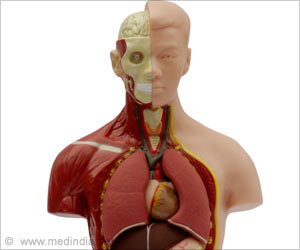A unique combination of medications to combat antibiotic-resistant Mycobacterium abscessus infections has been developed by researchers at SMART.
- Mycobacterium abscessus is a non-tuberculous mycobacterium (NTM) that causes lung infections and is growing increasingly resistant to clarithromycin, a crucial antibiotic used to treat NTM infections
- Rifaximin was discovered to be a clarithromycin potentiator that can boost clarithromycin sensitivity and improve bacterial death against Mycobacterium abscessus
- The combination of rifaximin and clarithromycin appears to be useful in treating NTM-related lung infections
A Singapore-MIT initiative creating solutions to address AMR
Go to source) (AMR) Interdisciplinary Research Group (IRG) at Singapore-MIT Alliance for Research and Technology (2✔ ✔Trusted Source
About SMART
Go to source) (SMART), MIT's research enterprise in Singapore, in collaboration with Nanyang Technological University Singapore (NTU Singapore) and National University Hospital (NUH), have discovered a novel therapy for treating Mycobacterium abscessus (M. abscessus) by combining two antibiotics, rifaximin and clarithromycin.
TOP INSIGHT
Researchers at SMART and NTU Singapore have discovered a promising therapy for treating #Mabscessus infections. Combining rifaximin and clarithromycin shows the potential in overcoming antibiotic resistance. Exciting progress towards clinical trials! #AMR #NTMinfections
Rising Global Challenge of Non-Tuberculous Mycobacterium (NTM) Infections
Infections produced by non-tuberculous mycobacterium (NTM) are an increasing public health concern around the world, particularly in the setting of lung infections. M. abscessus is one of the most common NTMs, producing pulmonary infections in those with immune deficits or underlying lung diseases. M. abscessus has also been associated with serious infections in other regions of the body, such as the skin, joints, soft tissues, and surgical sites. Because of the bacterium's considerable intrinsic resistance to many routinely used antibiotics, these infections are difficult to treat.Clarithromycin Potentiators for Effective Treatment of M. abscessus Infections
Currently, M. abscessus infections are treated with a multidrug regimen that includes clarithromycin, although some M. abscessus subspecies develop resistance to the antibiotic after repeated exposure. As a result, treatment choices are restricted, resulting in chronic and recurring infections, and in some cases, mortality. With clarithromycin being the mainstay of NTM treatments and the only highly effective oral antibiotic for treating M. abscessus infections, there is an urgent medical need to identify clarithromycin potentiators to effectively restore clarithromycin efficacy against M. abscessus. A recent study published in the scientific journal JAC-Antimicrobial Resistance, "Rifaximin potentiates clarithromycin against Mycobacterium abscessus in vitro and zebrafish (3✔ ✔Trusted SourceRifaximin potentiates clarithromycin against Mycobacterium abscessus in vitro and in zebrafish
Go to source)," revealed promising findings on the use of rifaximin (an antibiotic commonly used to treat gastrointestinal bacterial infections) as a clarithromycin potentiator with the ability to increase clarithromycin sensitivity and improve its ability to The researchers conducted drug screening campaigns during the study's discovery stage and effectively discovered many medication candidates as clarithromycin potentiators. Further preclinical testing of these therapeutic candidates showed rifaximin as the most efficient clarithromycin potentiator, with the combination of rifaximin and clarithromycin demonstrating efficacy in vitro as well as in a zebrafish embryo infection model.
Rifaximin and Clarithromycin: Promising Combo for M. abscessus Infections
SMART Peiying Ho, Sharon Ling, Boon Chong Goh, and Patrina Chua (from left to right) of the AMR research team performed compound screening to uncover novel antibiotic combinations.“We recognise the urgent need to address the growing problem of clarithromycin resistance in M. abscessus and are pleased to have discovered rifaximin as a potent clarithromycin potentiator. Despite being primarily used for gastrointestinal infections and having limited activity against drug-resistant M. abscessus, our study demonstrated the synergistic effect of rifaximin with clarithromycin in effectively eliminating the bacteria," said Dr Boon Chong Goh, first author of the paper and Principal Research Scientist at SMART AMR.
“With limited treatments available due to M. abscessus innate resistance to most antibiotics, including clarithromycin, the novel discovery of the strong combination between rifaximin and clarithromycin is a significant step towards addressing the challenge of treating NTM infections. As FDA-approved drugs, we will be able to quicken the process and translate the findings into improved treatment outcomes for patients suffering from M. abscessus infections," added Professor Peter C Dedon, corresponding author of the paper, Co-Lead Principal Investigator at SMART AMR and Professor at MIT.
Advancing Towards Clinical Trials: Rifaximin and Clarithromycin Combo for M. abscessus
To prepare for human clinical trials, the researchers are doing animal preclinical experiments. Because both rifaximin and clarithromycin are FDA-approved, preclinical trials assessing their combination against M. abscessus can be advanced. In addition, the team is working with a commercial manufacturing partner to develop inhalation formulations that will transport the drug combination straight to the lungs for use in human clinical trials. SMART is conducting the research, which is funded by the A*STAR Singapore Therapeutics Development Review (STDR), the SMART Innovation Centre, and the National Research Foundation (NRF) Singapore through its Campus for Research Excellence And Technological Enterprise (CREATE) program. The NTU Singapore researchers were instrumental in carrying out the zebrafish embryo infection.References:
- A Singapore-MIT initiative creating solutions to address AMR - (https://amr.smart.mit.edu/)
- About SMART - (https://smart.mit.edu/)
- Rifaximin potentiates clarithromycin against Mycobacterium abscessus in vitro and in zebrafish - (https://academic.oup.com/jacamr/article/5/3/dlad052/7156589)
 MEDINDIA
MEDINDIA





 Email
Email




